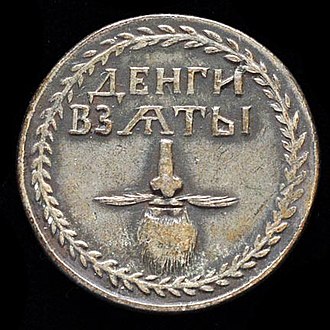Not even a close shave
If you want to know how not to do it, sadly, you can very often ask the Russian government. Like that business with the beard tax.
Huh? Beard tax? Wouldn’t they just shave? And the funny thing is that’s what the government, also known as Peter the Great, was hoping for when he brought it in on September 5, 1698.
You don’t often get a situation where a government introduces a tax hoping it won’t bring in money. But cynics, or perhaps realists, will not be surprised to hear that even then it failed.
Perhaps, as classic radio PI Brad “the Fat Man” Runyon once said, that could stand a little clarification. So here goes.
Peter the Great was a determined “modernizer.” He understood that to rival the West in military might to avoid being overwhelmed by it, Russia or any other what we would now call “underdeveloped” nation had to become prosperous and dynamic. And to do so it would have to adopt many Western cultural habits.
As I’ve written elsewhere, there’s a fatal paradox in any such attempt. Since the fundamental impulse here is to resist Western military power in order to resist its cultural sway, the necessity of adopting its culture to fend off its culture necessarily negates itself. But it also cannot work because the key element in western dynamic spontaneity is its spontaneity. It comes from within, from below, organically. If you have to force it, you just break it.
Which brings us to Peter. He understood full well the power of the West, especially its apparently chaotic, bafflingly successful approach of questioning everything and letting people work things out for themselves in the economy, in government, increasingly at that point even in religion. And he hated it. But he needed it. So he decided, as a singlehanded autocrat, to force it on his people.
Provided, of course, that instead of questioning everything they didn’t question anything, and didn’t think of working anything out for themselves in any important area. He created a new capital, further west and westward-looking, St. Petersburg. With slave labour.
He created a new social hierarchy with bureaucrats in place of aristocrats. The only way you could make it worse, one is tempted to say. But of course if merit had displaced birth spontaneously it would be good. It’s only bad when the whole thing is forced on a sullen populace, not just the serfs but everyone.
Likewise, Peter ordered his courtiers and officials to wear western clothing instead of traditional oriental robes, a legacy of the Mongols. And to shave off their old-tyme beards. The aristocrats balked. God wanted them to have beards. And so Peter placed a heavy tax on beards and in some cases forcibly shaved people himself.
Not only an absolute monarch, Peter was also a scary giant, 6’ 8”. When he shaved you, you stayed shaved. But evidently some of his victims actually carried their severed beards around with them so on the Second Coming they could fish them from their pockets and say see, I would have kept it if I’d dared or something equally unimpressive.
If people had decided in a decentralized, genuinely voluntary way to adopt new habits it would have been a desperately needed breath, nay gust, of invigorating fresh air in a stale and closed Russia. Instead it was a fiery blast that withered society further. Like all such violent modernizers, Peter squeezed more performance out of his government and his people in the short run. But he further weakened their capacity for genuine dynamism.
The result, ironically, was to make Russia even less Western while seeming more so. But in exactly the opposite way to his intention. In that sense, the beard tax was triply counter-productive. Designed to fail to raise money, it raised money, while worsening the problem it was meant to help solve.
Even by the standards of government, it’s an impressive failure.
